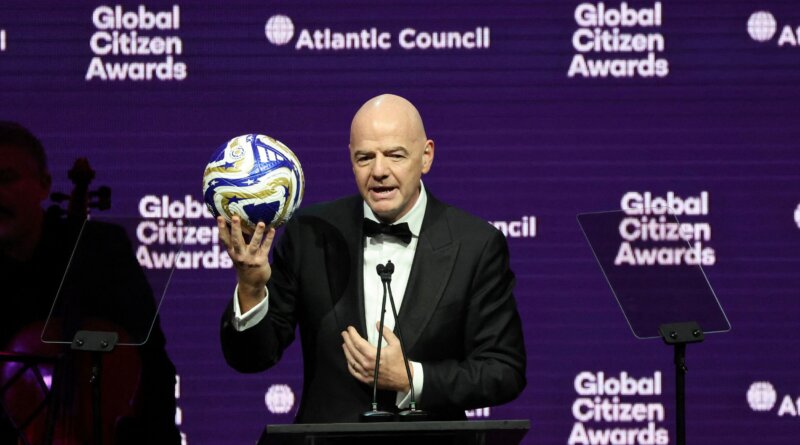FIFA World Cup Expansion to 64 Teams Unlikely for 2030
FIFA World Cup expansion talks have taken center stage in international football discussions, with recent debates focusing on whether the tournament should grow to 64 teams for the 2030 edition. While some South American leaders and CONMEBOL have advocated for this ambitious increase, recent reports indicate that FIFA is not planning to move forward with the proposal.
FIFA World Cup Expansion: The Current Landscape
The idea of a larger FIFA World Cup has been a frequent topic among football federation leaders around the globe. After the decision to expand the tournament to 48 teams beginning in 2026, calls for further expansion to 64 teams by 2030 surfaced, primarily driven by South American football executives and CONMEBOL representatives. Their argument centers on the unprecedented growth and inclusivity of global football, which they believe warrants more teams on the world’s biggest stage.
However, despite a recent meeting between FIFA officials and CONMEBOL leaders, it appears that the governing body remains unconvinced. According to sources reported by The Guardian, FIFA has significant internal skepticism about the feasibility and logistics of a 64-team format. The organization has confirmed it will communicate CONMEBOL’s proposal to relevant stakeholders but has not shown any inclination to advance the plan.
Reasons Behind FIFA’s Reluctance
Several factors contribute to FIFA’s hesitance to expand the World Cup further. Logistically, organizing a tournament with 64 national teams would present immense challenges in terms of scheduling, accommodation, and match infrastructure. The 2026 World Cup, already set for 48 teams across North America, will test the limits of stadium capacity, travel arrangements, and hosting capabilities.
Concerns also arise regarding the quality of competition. Adding more teams could dilute the tournament, making it harder to maintain high standards of play. Additionally, television rights, sponsorship deals, and ticketing structures would all require significant adjustments to accommodate the larger pool of teams—an undertaking that could disrupt existing commercial agreements and broadcasting plans.
Stakeholder Perspectives on FIFA World Cup Expansion
CONMEBOL and South American football leaders have expressed their disappointment but remain optimistic about future discussions. They argue that global football is evolving rapidly and that the opportunity to include more nations would foster development and excitement in regions previously underrepresented at the World Cup.
Other stakeholders, including some European and Asian associations, share FIFA’s reservations. They highlight logistical hurdles, increased travel demands, and concerns about player welfare with a more grueling tournament schedule. While the expansion proposal has its supporters, a consensus among football’s global governing bodies appears distant at this stage.
Historical Context: How World Cup Expansion Has Evolved
The FIFA World Cup has a long history of adaptation. Originally launched in 1930 with just 13 teams, the tournament has steadily increased its participation numbers—expanding to 16, then 24, and later to 32 teams. The most recent decision to move to a 48-team format was aimed at providing broader global representation, particularly for nations outside the traditional football powerhouses.
The jump to 64 teams, however, represents a far more significant leap. It would nearly double the number of participants from the 2022 tournament in Qatar, requiring host nations to provide even greater resources and organizational capabilities.
The Road Ahead: What to Expect for the 2030 FIFA World Cup
As FIFA gears up for the 2026 tournament in the USA, Mexico, and Canada, the focus remains on delivering a successful event with 48 teams. The governing body appears intent on gathering feedback and carefully evaluating the results before considering any further expansion.
For fans and federations eager to see a 64-team World Cup, patience will be necessary. The current signals from FIFA suggest that the organization is prioritizing stability, quality, and the logistical feasibility of its flagship event. Stakeholder engagement will continue, but any substantial changes are unlikely to occur before the 2034 World Cup cycle.
Opinion: A Measured Approach from FIFA is Sensible
Given the complexities involved in organizing a mega-event like the FIFA World Cup, the reluctance to immediately embrace a 64-team expansion for 2030 seems wise. While inclusivity and global representation are worthy goals, ensuring the tournament maintains its high sporting and organizational standards is equally important. A cautious and thoughtful approach will help sustain the prestige and excitement of the FIFA World Cup for future generations.
For ongoing updates and more news on global football developments, visit for more news.
Your global gateway to nonstop football coverage:
News Goal
Share this content:
